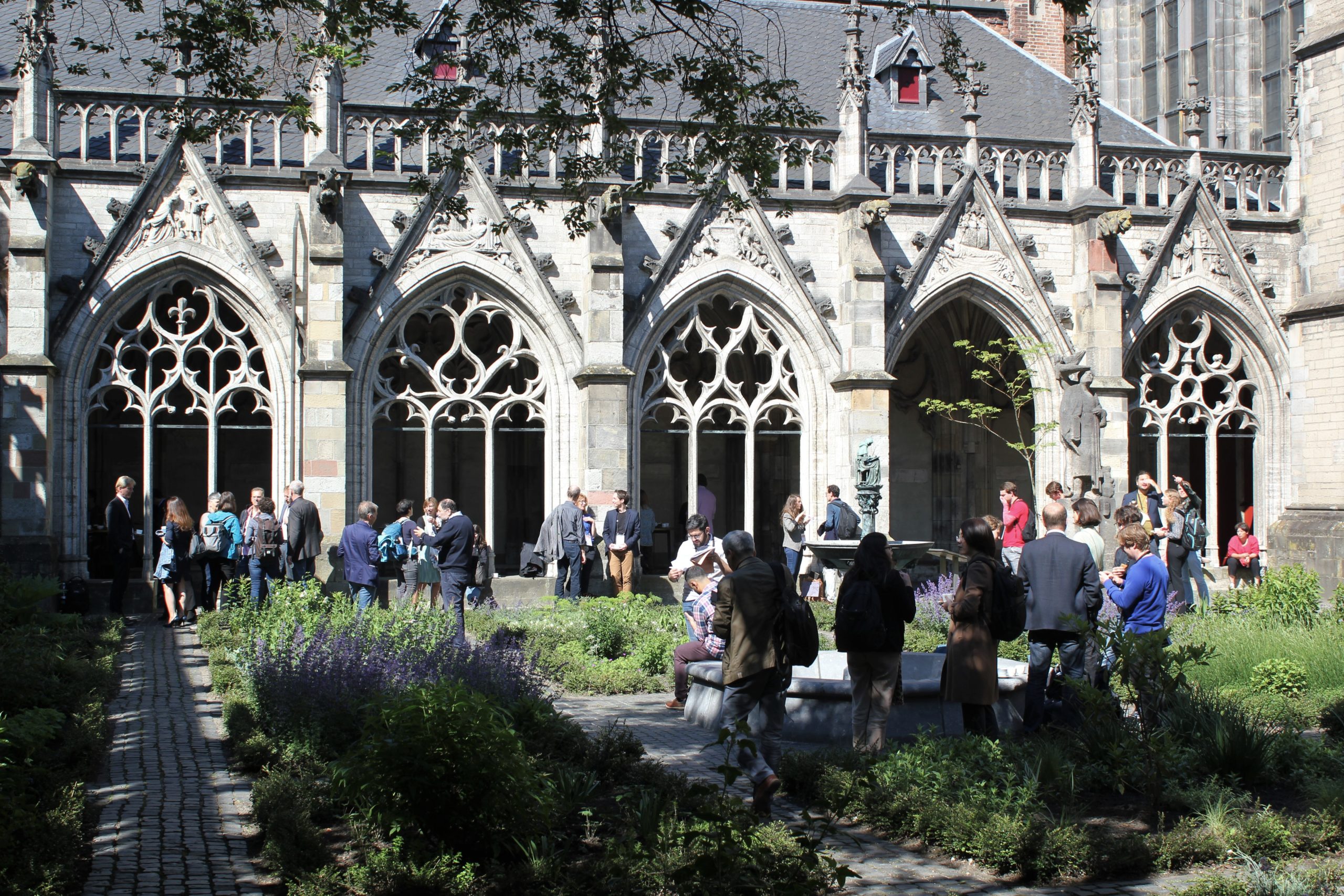Challenging Science and Innovation Policy
Annual Conference
1 – 3 June 2022
Hosted by Copernicus Institute of Sustainable Development at Utrecht University
After three years of COVID-related pause, the annual Eu-SPRI conference could finally be held in person again. Organised by the Innovation Studies Group from the Copernicus Institute for Sustainable Development of Utrecht University, Eu-SPRI 2022 took place in the beginning of June. It consisted of three days full of learning, sharing new insights, networking and “gezelligheid” at the social events, all in the historic and buzzing city centre of Utrecht, the Netherlands. It became clear that the academics and practitioners attending not only represent the cutting edge of research being done on science and innovation policy, but that they also form a thriving community. After years of online conferences, many were happy to finally reunite in real life. The conference venue, consisting of the “Academiegebouw”, the “Pandhof” (pictured above) adjacent to the Utrecht Cathedral and other old buildings surrounding the central Dom square, provided a beautiful backdrop for this reunion.
As one conference participant put it eloquently:
“It was so lovely to be able to be in beautiful Utrecht in person – a feast for the eyes, with all of the beautiful old buildings, and the brain, with all of the interesting presentations and conversations.”
Many participants echoed this sentiment, both during the conference and on Twitter. A sentence often uttered was “it’s great to be back!” and especially early career researchers realised the value of attending an in-person conference, which some of them did for the first time. As Nikhil John, PhD candidate in Utrecht, tweeted:
“I can’t believe how much this week’s #EuSPRI2022 supercharged my motivation, even for my own research. I utterly underestimated the impact of in-person conferences. Such a shame for my generation of PhDs and ERCs, it took 2.5 years to experience this…”

The conference was attended by more than 250 participants, coming from a range of countries and organisations. Naturally, Utrecht University provided the most attendants, but Fraunhofer ISI, University of Oslo, TU Delft, the Austrian Institute of Technology (AIT), University of Manchester and VTT Technical Research Center of Finland were also among those particularly well-represented. Whereas (as the first letters in Eu-SPRI suggest) most participant came from universities, research institutes and policy-making organisations within Europe, there were also some notable exceptions, with a great contribution from Israel and even attendants from countries as far as Brazil and New Zealand.
The sessions tracks ranged from familiar topics such as transformative and mission-oriented innovation policy, to research areas as diverse as the space sector or the role that justice, ethics and inclusion play in STI research and policy. Moreover, there were dedicated sessions by Eu-SPRI’s new Stakeholder Advisory Board (SAB), the Research Infrastructure for Science and Innovation Policy Studies (RISIS) and the Transformative Innovation Policy Consortium (TIPC). The SAB suggested new concrete initiatives to strengthen the connections between the science and innovation policy and academic communities and held a lively discussion on the matter. RISIS presented projects conducted by young researchers, enlightening how RISIS resources contributed to deepen and overcome particular issues. TIPC discussed the state of debate on the building of a Transdisciplinary, globally Accessible and Sustainable Knowledge Infrastructure (TASK-I) on Transformative Innovation Policy. Furthermore, each day had an interesting keynote, with Frank Miedema speaking on Open Science, Haroon Sheikh on Digitalisation and Philine Warnke on Foresight.

There was also more to be seen outside of the educational part of the conference. The three days provided attendants with the opportunity to experience the infamously unpredictable Dutch weather, with the rain fortunately followed by beautiful sunshine. Despite the sun, no one had to remain thirsty: the first day was concluded by a reception in the stunning Paushuize, the former residence of the only Dutch pope. Moreover, the second day coincided with Utrecht’s 900th anniversary as a city, filling the centre with celebratory events and joyous Utrechters. Conference participants could toast to this (and to many other things) after having dinner in the great hall of the Winkel van Sinkel. All in all, Eu-SPRI 2022 was thus a successful event and a pleasure to attend. The programme, paper abstracts and some full papers can be found on the Eu-SPRI 2022 conference website. We thank the members of the scientific committee, the organising committee, student assistants and all others who made this conference such a success! The next Eu-SPRI annual conference will take place in Brighton, UK and is organised by the Science Policy Research Unit (SPRU) of the University of Sussex.

